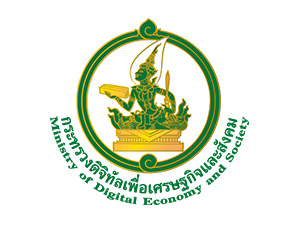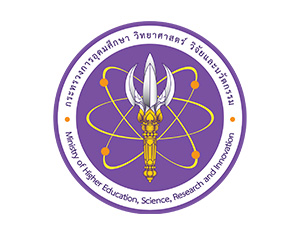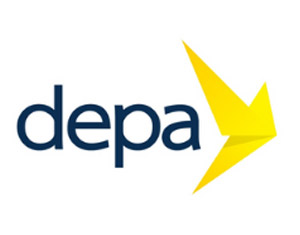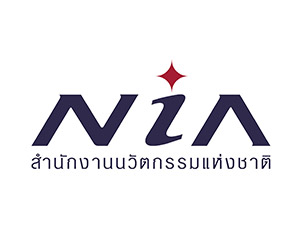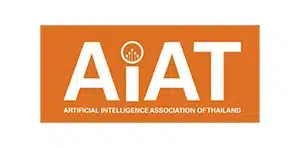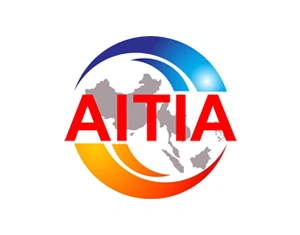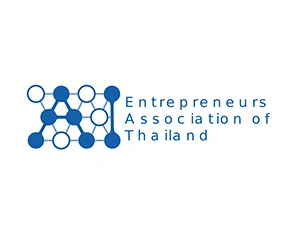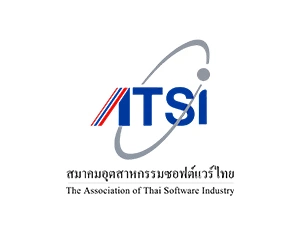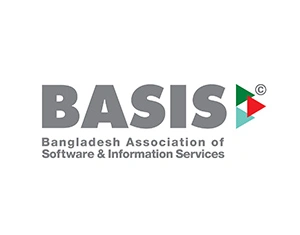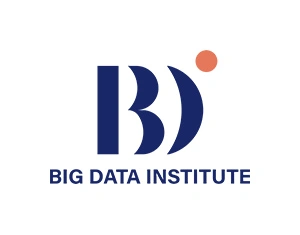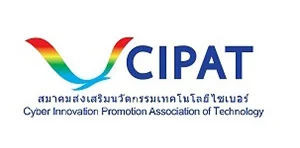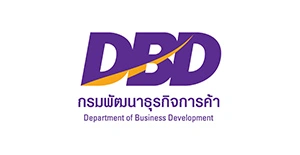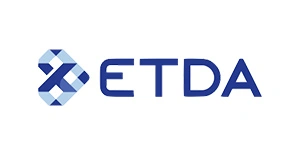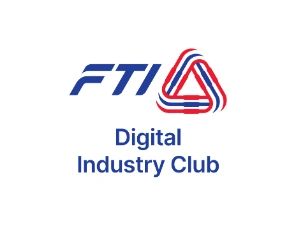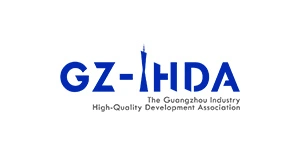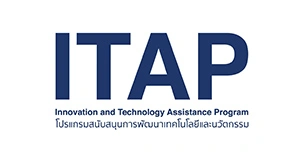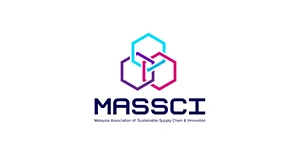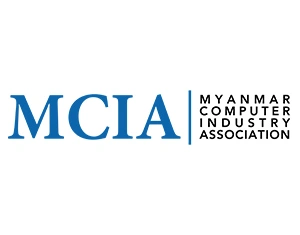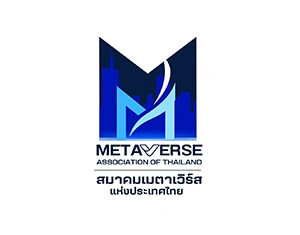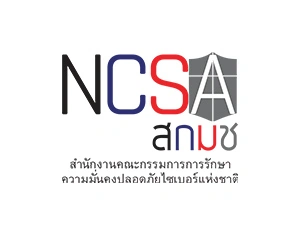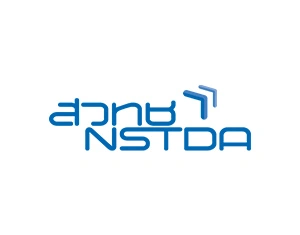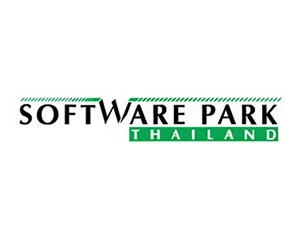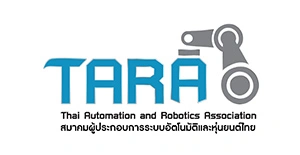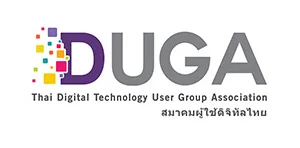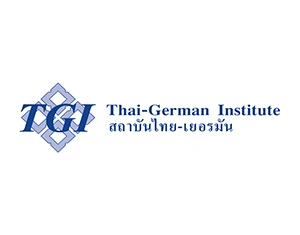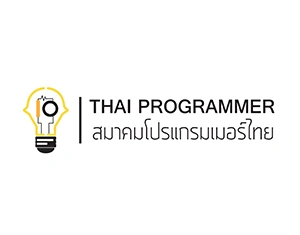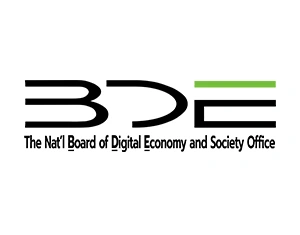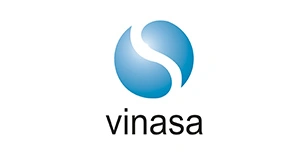Host Organisations
Ministry of Digital Economy & Society, Thailand
The Ministry of Digital Economy and Society (MDES) is a government agency in Thailand responsible for promoting and developing the country’s digital economy, society, and security. It was established in 2016 as part of the Thai government’s efforts to support the growth of the digital economy and the adoption of digital technology across all sectors. The MDES is responsible for developing policies and strategies related to the digital economy, as well as promoting the adoption of digital technology among businesses, individuals, and government agencies. The ministry is also responsible for overseeing the implementation of laws related to digital technology, such as those related to cybersecurity and data privacy.
Ministry of Higher Education, Science,
Research and Innovation
“The Ministry of Higher Education, Science, Research and Innovation is a government agency responsible for overseeing and promoting higher education, scientific research, and innovation in Thailand. The Ministry was established in 2019 as part of the government’s efforts to drive the country’s development towards a knowledge-based economy.
The main functions of the Ministry include formulating policies, strategies, and plans for higher education, science, research, and innovation, as well as promoting cooperation and collaboration with other countries and international organizations in these fields. It is also responsible for managing and allocating funding for research and development projects, as well as regulating the quality and standards of higher education institutions in Thailand.
In addition, the Ministry is responsible for promoting science and technology education and increasing public awareness of the importance of science and innovation in driving economic growth and development. Its goal is to create a workforce that is well-equipped with the knowledge and skills necessary to thrive in a rapidly changing global economy.”

Strategic Partners
Digital Economy Promotion Agency (DEPA), Thailand
“The Digital Economy Promotion Agency (DEPA) is a government agency in Thailand that was established in 2016 under the Ministry of Digital Economy and Society. Its mission is to promote the development and adoption of digital technologies to enhance the country’s economic growth and competitiveness.
The agency’s main functions include the promotion of digital literacy, the development of digital infrastructure, the provision of funding and support for digital startups and SMEs, and the facilitation of collaboration between the public and private sectors in the development of digital technology.
DEPA is also responsible for developing policies and strategies to support the growth of the digital economy, as well as conducting research and analysis to identify trends and opportunities in the sector. Its ultimate goal is to establish Thailand as a hub for digital innovation in Southeast Asia and to drive the country’s economic growth and development in the digital age.”
National Innovation Agency (NIA), Thailand
“The National Innovation Agency (NIA) is a government agency responsible for promoting and supporting innovation in Thailand. The agency was established in 2003 and operates under the Ministry of Higher Education, Science, Research, and Innovation.
The NIA’s main goal is to support the development of a knowledge-based economy in Thailand by fostering innovation and technology. To achieve this, the agency provides various services, including funding for research and development, technology transfer, intellectual property management, and business incubation.
The NIA also works closely with industry partners, research institutions, and universities to promote collaboration and knowledge-sharing. Through its initiatives, the NIA aims to create a vibrant innovation ecosystem that will drive economic growth and social development in Thailand.”

Regional Supporting Partner
MDEC
Malaysia Digital Economy Corporation (MDEC), a government agency under the purview of the Ministry of Digital, was established in 1996 to lead Malaysia’s digital economy. Beginning with the implementation of the MSC Malaysia initiative, we have since then catalysed digital transformation and growth all over the nation. By offering greater incentives and governance for growth and re-investment, we aspire to bolster Malaysia’s status as the digital hub of ASEAN, opening new doors and driving shared prosperity for all Malaysians.
Discover how MDEC is empowering the nation by upskilling Malaysians to be digitally savvy, providing digitalisation support to businesses, supporting tech companies in expanding internationally and driving investment in the digital economy.

Industry Partner

ATxEnterprise
Mark your calendars for May 27–29, 2025, at Singapore Expo! Asia’s leading tech event brings together global innovators, enterprises, and thought leaders to explore cutting-edge technologies and drive digital transformation. Network, collaborate, and shape the future of tech. Register now at https://bit.ly/4km1lP4

Supporting Organizations
AIAT
The Artificial Intelligence Association of Thailand (AIAT) is dedicated to supporting and promoting the research and development of artificial intelligence technology in Thailand to an international level.
Asian-International Trade and Investment Association (AITIA )
With a vision to be a central hub for cooperation in trade, investment, and industry between the government and international commerce of the 10 ASEAN countries and China, the Asian-International Trade and Investment Association (AITIA) connects entrepreneurs, investors, and key organizations to help create new business opportunities, drive economic growth, and promote technology sharing.
Our main goal is to make businesses in ASEAN and China strong and long-lasting. We do this by continuously growing our network of partners and backing new projects, especially those in the digital world
Artificial Intelligence Entrepreneur Association of Thailand
The Artificial Intelligence Entrepreneurs Association of Thailand (AIET) was established on January 14, 2021. It plays an important role in promoting the advancement of artificial intelligence (AI) businesses in Thailand and the Asian region.
Association of Thai Software Industry (ATSI)
The Association of Thai Software Industry promotes the development of the software industry to achieve competitiveness and standards that can rival international software in both the short and long term. The association supports investment in the software business from both domestic and international sources by providing comprehensive facilitation and services. It encourages the transfer of software production technologies and other related technologies from global sources to Thailand, fostering an environment conducive to high-quality software production and development. Its efforts aim to enhance productivity to meet domestic demand and prepare for future export opportunities. Additionally, the association promotes the software profession and the development of skilled personnel at all levels, ensuring they are well-equipped to work effectively in the industry.
BASIS (Bangladesh Association of Software & Information Services)
Established in 1998, BASIS is the national trade body for Bangladesh’s software, IT, and IT-enabled services (ITES) industries representing over 2,700 member companies, collectively accounting for the majority of Bangladesh’s ICT exports. BASIS empowers members by fostering ambition, building capacity, and ensuring sustainable growth to create a globally competitive ecosystem. Its vision is to position Bangladesh as a reliable, quality-driven IT hub.
Big Data Institute
Big Data Institute (BDI) is a public organization under the Ministry of Digital Economy and Society, aimed at driving the country’s economy and society through big data. Formerly under the supervision of the Digital Economy Promotion Agency, it was renamed the Government Big Data Analytics and Management Institute (GBDi) in 2019.
Cyber Innovation Promotion Association of Technology
The Cyber Innovation Promotion Association of Thailand, or CIPAT (pronounced “Cy-pat”), was established in 2017 by a group of private innovation companies and university professors. Its purpose is to promote cyber innovation entrepreneurs in Thailand and serve as a mechanism to drive Thailand’s development of domestic cyber innovations. The association aims to cultivate innovative personnel within the country to facilitate a safe and sustainable transition into a digital society.
Department of Business Development (DBD)
Part of Thailand’s Ministry of Commerce, the DBD is responsible for business registration, promotion, governance, and facilitation. It offers full digital services—such as e-registration, e-filing of financial statements, and e-certificates—via its website and mobile app. The department empowers entrepreneurs through support programs, training via the DBD Academy, and trust marks like DBD Registered and DBD Verified. Established over 100 years ago, DBD continues evolving into a fully digital, modern service provider.
Electronic Transactions Development Agency
ETDA is an organization designed to promote and drive Thailand’s economy and society toward a digital economy and society, where all sectors can conduct trustworthy transactions online with confidence, security, and safety.
FTI Digital Industry Club
The Federation of Thai Industries (FTI) is a non-profit organization that was upgraded from the Thai Industrial Association, which had been in operation since November 13, 1967, to the Federation of Thai Industries on December 29, 1987. It operates under the supervision of the Minister of Industry, as stipulated by the Federation of Thai Industries Act B.E. 2530 (1987). This was part of the government’s policy to strengthen Thailand’s private business institutions, thereby ensuring continuous industrial development that aligns with the country’s economic progress and protects national interests in the global economy.
Guangzhou Industry High – Quality Development Association
The Guangzhou Industry High-Quality Development Association is a comprehensive non-profit organization under the guidance of the Guangzhou Municipal Industry and Information Technology Bureau as the business supervisory authority and the Guangzhou Municipal Civil Affairs Bureau as the business guiding and supervisory management authority.
The Association maintains strong business relationships and partnerships with numerous business associations and well-known enterprises. The Association actively assists the government in promoting investment along the industrial chain, attracting overseas resources, implementing industrial policies, and connecting with top-notch exhibitions. It proactively empowers enterprises by creating supply and demand platforms, establishing bridges between government and business, promoting brand globalization, and facilitating the transformation of achievements.
Innovation and technology assistance program
ITAP (Innovation and Technology Assistance Program) is an organization under the National Science and Technology Development Agency (NSTDA). ITAP’s main mission is to create mechanisms linking Technology Service Providers with Technology Users. We provide technical experts to assist entrepreneurs in research and development, offering on-site consultation and problem-solving at factories, along with project funding support. The objective is to stimulate Thailand’s economic growth by fostering technological innovation to enhance the technological competitiveness of small and medium-sized enterprises (SMEs).
MASSCI
The Malaysian Association of Sustainable Supply Chain & Innovation (MASSCI) is a national industry body advancing sustainability, innovation, and technology integration across Malaysia’s industrial sectors. Established in 2022, MASSCI works with government, academia, and industry partners to strengthen resilience, promote green and digital transformation, and integrate Malaysian enterprises into global supply chains. Its initiatives bridge sustainability, AI adoption, and industrial innovation—positioning Malaysia as a key partner in ASEAN’s sustainable digital economy.
The Myanmar Computer Industry Association (MCIA)
The Myanmar Computer Industry Association (MCIA), established on May 17, 1998, under the Computer Science Development Law, is a non-profit, non-governmental organization. It unites computer entrepreneurs and related professionals in Myanmar to promote ICT development, socio-economic growth, and ethical business practices. Guided by the Myanmar Computer Federation (MCF) and affiliated with the UMFCCI, MCIA operates in nine States and Regions, collaborating with national and international organizations. Core activities include BarCamp, the International Myanmar ICT Exhibition, e-Government Forum, Developer Conference, and local IT exhibitions. MCIA also participates in global events like WITSA and ASOCIO, fostering ICT advancement and regional collaboration.
Metaverse Association of Thailand
The Metaverse Association of Thailand was established as a central hub for the Metaverse community. We are dedicated to the development of the Metaverse and welcome individuals who are interested in exploring and learning more about it. Our mission is to provide opportunities for people to grow and develop themselves in the world of Metaverse.
National Electronics and Computer Technology Center : NECTEC
The National Electronics and Computer Technology Center (NECTEC) was established on 16 September 1986 under the Ministry of Science, Technology and Energy (the former name of Ministry of Science and Technology). On 30 December 1991, following the enactment of the Science and Technology Development Act of 1991, NECTEC was transformed into a national technology center under the National Science and Technology Development Agency (NSTDA), Ministry of Science and Technology. At present, NECTEC is a statutory government organisation with its main responsibilities of under taking, supporting and promoting the research and development of electronics and computer technologies. NECTEC also provides linkage between research communities and industries through the established industrial clusters and programmes.
National Cyber Security Agency (NCSA)
The Cybersecurity Act B.E. 2562 (2019) came into effect on May 28, 2019, with the objective of establishing policies, measures, and guidelines for cybersecurity protection. It applies to both government agencies and private sector organizations that serve as critical information infrastructure. The Act aims to prevent, respond to, and mitigate risks from cyber threats to ensure they do not impact national security or public order. Additionally, the National Cyber Security Committee (NCSC) is designated as the responsible agency under this Act, coordinating operations between public and private sectors in both normal and critical security situations to enhance the efficiency of cybersecurity prevention and response.
Regarding system security, managing cyber threats is a crucial concern for all organizations. Cyberattacks, such as hacking, malware deployment, and Distributed Denial of Service (DDoS) attacks, can significantly impact user data and trust in services. Implementing two-factor authentication (2FA) and data encryption helps reduce the risk of cyberattacks effectively.
National Science and Technology Development Agency (NSTDA)
The National Science and Technology Development Agency (NSTDA) is a key powerhouse of the country in utilizing science, technology, and innovation from the government, private sector, and communities to develop and strengthen the research and innovation ecosystem. This aims to address critical issues and lead to rapid national development.
Software Park Thailand
On May 21, 1977, The Thai Government established Software Park Thailand as the nation’s strategic industry aiming to support World Trade Liberalization in information technology, provide entrepreneurs in the Thai software industry with a friendly ecosystem for ease of doing business, and promote human resource development activities in software and multimedia.
Software Park Thailand activities include promoting technology transfer through high-end training course for IT professionals, upgrading quality standard of local companies to the international level, supporting collaboration with both local and international alliances for new market opportunities in Thailand and overseas, and providing space for company.
Technology Promotion Association (Thailand-Japan)
Technology Promotion Association (Thailand-Japan), or TPA, is a non-profit organization that was established in 1971 to promote and support the technological advancement of members and to disseminate it to the general public for the purpose of enhancing the country’s economy, education, and personnel development through technology. This involves organizing training seminars, teaching, offering consultancy services in various fields, certifying the knowledge and skills of personnel, transferring and researching technology and languages, as well as operating schools, colleges, universities, educational institutions, agencies, organizations, or foundations related to technology and academics. It encompasses compiling, organizing, translating, and publishing academic books, issuing journals of the association, and documents related to technology for both members and the general public. Furthermore, it involves providing services in various industries and related technologies, establishing calibration centers for industrial measuring tools, testing centers, and offering consultancy services in the industrial sector and other related services. Cooperation with various institutions, both domestically and internationally, particularly in Japan, is also part of the operations, including investing or joint venturing in businesses that have objectives aligned with the association’s, without involving political activities.
Tcloud Marketplace International
Tcloud is guided by the Office of Science and Technology Policy, OSTP, and jointly promoted by the Administration for Digital Industries, MODA. It strictly selects outstanding Taiwanese information service providers to be featured in the international section, offering services to customers around the world. Through this website, not only can you find carefully selected outstanding Taiwanese information service providers and a variety of application cases, but also transformation resources.
Thai Automation and Robotics Association
TARA stands for the Thai Automation & Robotics Association, an organization formed by uniting Thai System Integrators (SI) specializing in automation and robotics systems. Its mission is to collaborate in promoting automation and robotics to play a significant role in developing and enhancing efficiency across various industries. The ultimate goal is to drive Thailand’s economy forward towards Industry 4.0.
Thai Chamber of Commerce
As Thailand’s leading organization for trade and services, The Thai Chamber of Commerce is committed to enhancing competitiveness and driving the country toward sustainable growth in the global market by leveraging data and knowledge, strong networks, and strategic partnerships.
Thai Digital Technology User Group Association
In line with the ongoing mission to drive Digital Demand Generation and Transformation within Thailand’s Cross-Sector User Groups, the Thai Digital Technology User Group Association (DUGA) has now been officially established.
The primary objective of DUGA is to unify the efforts of cross-sector user groups across Thailand in advancing the Digital Demand Generation and Transformation agenda within both intra-sector and cross-sector dimensions. The Association also aims to collaborate closely with the government in propelling the nation forward.
DUGA is committed to promoting and supporting the use of digital technologies in diverse forms and dimensions throughout this era of transition. It seeks to creatively empower major digital technology user industries in Thailand, contributing to national development both economically and socially.
With full readiness, DUGA is set to launch a wide range of activities to enhance the application of digital technology, raise awareness, and lead campaigns and communications among its members from various key industry sectors. These efforts aim to support organizational transformation and play a pivotal role in the advancement and development of the nation.
The Association is determined to serve as a collaborative platform between Thailand’s core digital user industries and the public sector—facilitating the exchange of perspectives and recommendations on how to effectively and economically utilize digital technology to elevate the well-being of the Thai people as a whole.
Thailand E-commerce Association
The Thai E-Commerce Association supports Thai entrepreneurs in leveraging e-commerce as a tool to enhance their competitiveness both domestically and internationally.
Thai-German Institute
Thai-German Institute (TGI) is a joint initiative of the Government of the Kingdom of Thailand and the Government of the Federal Republic of Germany, the aim was to be effective training center for transferring advanced manufacturing technology to Thai industry. It was set up as an atonomous body outside the former education system with its operation under the supervision of the Foundation for Industrial Development (FID) and a broad oversight by the Ministry of Industry.
Thai Programmer Association
The Thai Programmer Association is the largest network of programmers in Thailand, dedicated to fostering discussions, promoting events, and sharing knowledge in the field of programming
The National Digital Economy and Society Commission
The National Digital Economy and Society Commission (NDESC) is a Thai government agency that is responsible for developing and coordinating policies related to the digital economy and society. It was established in 2015 as part of the Thai government’s efforts to promote the use of digital technology to drive economic growth and enhance the quality of life for Thai people. The NDESC works with various government agencies, private sector organizations, and civil society groups to promote the development of digital infrastructure, digital skills, and digital entrepreneurship in Thailand. Its main goals are to promote digital innovation, increase digital literacy, and ensure that all Thai people have access to the benefits of the digital economy.
The Selangor Information Technology and Digital Economy Corporation (Sidec)
The Selangor Information Technology and Digital Economy Corporation (Sidec) is a government agency under the Selangor State Government and a wholly owned subsidiary of Invest Selangor Berhad. Sidec plays a vital role in driving digital transformation across the state through three core pillars: E-Commerce, Startup Development, and Smart City & Digitalisation.
As a key enabler of Selangor’s digital economy, Sidec empowers entrepreneurs and SMEs by promoting digital adoption, accelerating startup growth, and fostering collaboration between public and private stakeholders. Through impactful initiatives such as the Selangor Deep Tech Xccelerator (Deep-X), Selangor Retail Tech Xccelerator (Retail-X), and the CXO Club 2025, Sidec continues to position Selangor as Malaysia’s leading digital state and a thriving innovation hub in Southeast Asia.
Vietnam Software & IT services (VINASA)
Vietnam Software & IT services (VINASA) is a national association in Vietnam, operating on a non-governmental and not-for-profit basis with the purpose to promote cooperation and mutual support among the members, in order to promote the development of Vietnam software industry and to protect the members’ rights. VINASA was established in April 2002.
VINASA currently comprises more than 600 company members, most of whom are leading software firms operating nationwide. VINASA member companies employ about 65% of the total number of professional programmers and account for about 75% of software production in Vietnam.
The main functions of VINASA are to act as a bridge between the Government and the software business community and to protect and promote the interests of VINASA member companies (by organizing training programs, workshops, trade fairs, oversea business missions, business matching, interest groups/clubs, ICT awards, providing information, etc.) and thus help develop the Vietnam software industry.
VINASA’s organization consists of: Business Development Services Department, Policy Department, Education and HR Resource Training Department, Membership Department, Digital Life Magazine, VINASA Science and Technology Institute, Branch office in Ho Chi Minh City.
VINASA has already become a full and active member of representative global and regional IT organizations, including WITSA (World IT and Services Alliance) and ASOCIO (Asian-Oceanian Computing Industry Organization)

